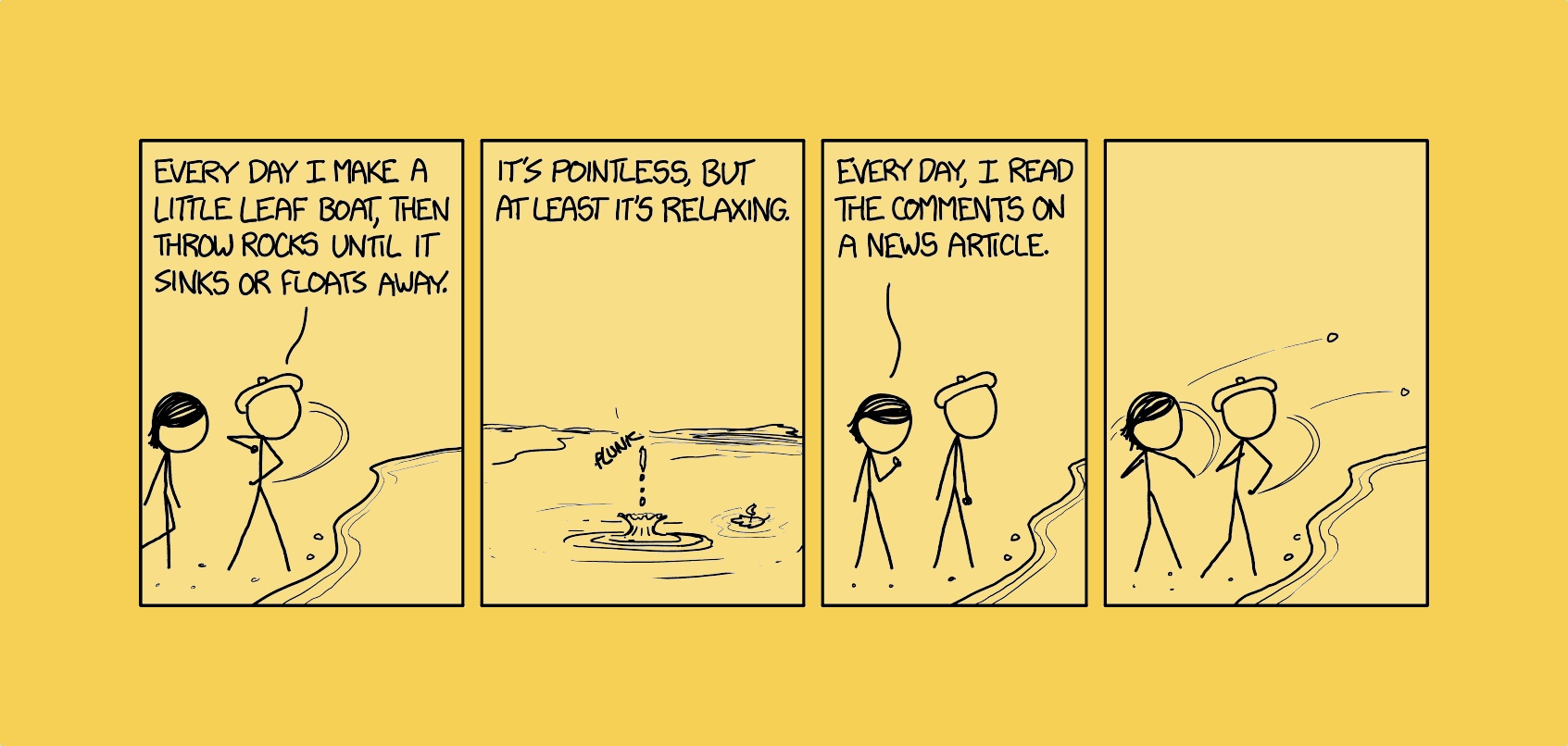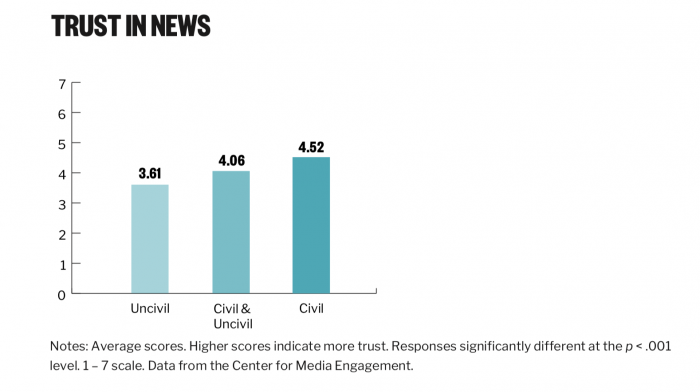
Moderating the online world is hard. (Casey Newton’s investigations at The Verge, looking into the quality of life of contractors tasked with reviewing toxic content for Facebook and other platforms, highlight some of many tragic and downright bizarre content moderation workplace incidents.)
Moderating the online world of journalism is hard work, too. A new study from the Center for Media Engagement shows that people moderating uncivil comments on news sites decreases their trust in the news outlet and increases their emotional exhaustion. And that’s just 747 participants from Mechanical Turk who spent an average of 24 minutes doing it — not even a survey of the people who are actually paid to do this stuff all day.
“The toll of moderating uncivil comments may be much stronger for moderators putting in several hours or a full day,” researchers Martin J. Riedl, Gina Masullo Chen, and Kelsey N. Whipple wrote in their findings. “They may have a better experience on the job if they moderate a mix of civil and uncivil comments, rather than focusing exclusively on uncivil content. We also suggest comment moderators be given other tasks, along with comment moderation, to improve the experience.”
Those who had moderated only uncivil comments in the experiment reported a score of 3.61 on a 0-7 scale with 7 being Ultimate Cronkite levels of trust in news; “our results suggest that moderating only uncivil comments diminishes perceived trust in a news outlet,” they wrote.

The emotional toll was also higher for uncivil-comment moderators compared to those tackling both civil and uncivil or only civil comments.

(The researchers used real comments — presented without brand-name context — from Breitbart, MSNBC, The New York Times, and Yahoo and defined uncivil comments as those including profanity, insults, name-calling, or CAPSLOCK.)
The mere presence of uncivil comments can really cloud a person’s perception of a news site, CME researchers have previously found; so it does make a difference if you have a comments section to have someone there fighting the good fight:That built on the work of a study from LSU published in November that showed your credibility, in readers’ eyes, can be seriously whacked by commenter attacks — spilling over from those fine folk who write them:Researchers at the Center for Media Engagement at the University of Texas found that uncivil comments on news stories can cloud a visitor’s perspective of a news site — even if more civil comments are presented first.
Experiments with more than 1,500 testers showed that people who only saw uncivil comments had diminished loyalty, value, and overall positive attitudes toward the news site in question. Readers who encountered majority-civil comments weren’t as disheartened, but with the internet these days, that can be a hurdle.
“Merely starting a comment [section] with civil comments is not enough,” wrote Gina Masullo Chen, Shuning Lu, and Ori Tenenboim in the study’s report.
So yes, the comments section does matter, and so does having someone involved down there. Just make sure they’re doing okay, too. Remember: Women tend to face more abuse online than men, regardless of their role online, though the credibility swings affect everyone. (And also remember: Is trust in news the core problem, or is the way news makes people feel?)Our results suggest that incivility in comment sections can influence how people perceive a news organization’s brand — which is key to attracting an audience. The study shows that news organizations would benefit from improving comment sections. Some organizations have tried to deter incivility by encouraging journalists to highlight comments that are civil and thoughtful or to post the first comment to set a positive tone for a comment thread. These practices are worthy, but they may not be enough. News organizations should focus on the whole comment stream or at least the parts that are visible when people visit the site.